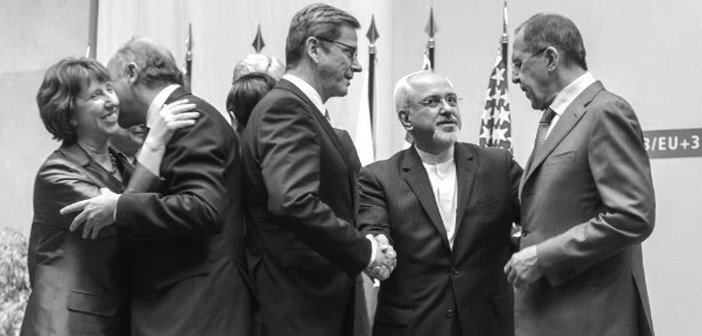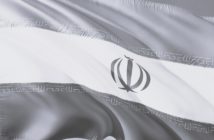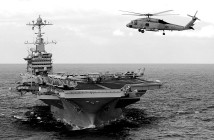To answer the question of war and peace, one can claim that war is easy because it does not demand any arduous negotiations that patiently contradict with the logic of peace-seeking politicians through diplomacy.
On 14 April, the final pact with Iran publicized by the U.S. and other major superpowers does what no amount of political posturing and ambiguous threats of military attack had managed to do before. The U.S., Iran, and the UN Security Council negotiating partners as well as the E.U. countries agreed on the parameters of a plan that, if finalized and implemented, will hamper Iran from acquiring a nuclear weapon.
Based on the nuclear pact parameters, Iran is obliged to cut its stockpile of enriched uranium by 98 percent, and reduce the number of installed centrifuges that are or could be used to enrich uranium by more than two-thirds. For at least the next 15 years, Iran would be limited to a single uranium enrichment facility, which aims to curb the construction of needed Plutonium for a nuclear bomb at Arak’s nuclear reactor, and barred from enriching any uranium beyond a level that is adequate for civilian purposes but nowhere near sufficient to provide fuel for a nuclear weapon.
In turn, succinctly, under the terms of the agreement, Iran firstly is allowed to keep its nuclear facilities, which it insists are for peaceful uses such as generating energy and treatment of refractory diseases, but they would be subject to strict production limits. Secondly, a range of international embargos will be lifted, that have severely decreased Iran’s sale of oil and prevented access to the international financial system.
It took two years of intense negotiations, capped by eight tumultuous days and nights of talks that for several times appeared on the brink of collapse.
In the wake of the nuclear pact, the domestic status of Iran is among the main unknown factors.
The question that promptly needs to be addressed is what kind of impacts the nuclear pact would have on the following factors: atmosphere and public opinion, equations inside administration powers, future elections, status of administration oppositions, atmosphere of foreign relationships and finally the status of the country’s economy. In the following, I am going to set forth speculation about the aforementioned factors.
Public opinion
In seems that the nuclear pact, to a great extent, will increase the popularity of Hassan Rouhani’s administration both in the short and in the long term. In psychological and mental terms, the nuclear pact has caused a new type of national pride amongst Iranians, which is unprecedented in negotiations of Iranian diplomats and official represents with proxies of world superpowers and which is a first in the entire life of Islamic Republic of Iran.
In practical term, civilians are expecting better and more tangible welfare conditions. The expectation arose due to Rouhani’s administration indeed having great influence on forming the pact by stressing the severe economic impacts of sanctions on people’s living conditions.
But the population might be disappointed by the changes that are to come of the Iranian living conditions, as a big portion of it is initially pertinent to deficient and corrupted structures of the ruling theocracy in Iran.
Likewise, a major part of society is expecting Rouhani’s administration to turn its attention to another pool of promises in the area of social and political affairs, following this main priority. It is widely accepted inside Iran that this deal is to be a direct consequence of the Green Movement and of the great fear of Khamenei’s tyranny. As a reminder of the road ahead here there are hundreds of mothers who mourn the murder of their innocent children in the hands of the security forces of the Islamic Republic in the course of the Green Movement in Iran. Unfortunately many innocent victims are not here to celebrate with other Iranians this triumph of their collective will to resist injustice and tyranny, but their enduring memory and unjustly perished life will remain a guiding light on the winding path ahead.
Equations inside administration powers
Although signing the nuclear pact without Khamenei’s consent would have been impossible, at the same time, in practice, there was no possibility of meeting all his wishes, such as banning investigation and constant monitoring of military bases.
He is indeed not against the pact; meanwhile he will not stop hard-liners and extreme conservatives from condemning the pact simply because it is crossing some of Khamenei’s red lines.
Overall, it is expected that the positive aftermath of the pact will pump blood towards supporters of Rouhani and MPs, like Ali Larijani head of the Parliament, who in fact are defending Rouhani’s administration.
Future elections
It is a fact that the nuclear pact has and will inevitably increase Rouhani’s popularity among voters for the next round of parliamentary elections, but it is really cloudy as to how many of his supports or representatives will be able to pass through the numerous filters of the Guardian Council to take part in the parliamentary elections. This would be a hot topic of yet another challenge for his supporters to embroil with extreme conservatism like Ahmad Jannati, chairman of the Guardian Council of the Constitution, the council that decides who is in and out of election campaigns.
The next parliamentary elections will for the first time be held simultaneously to the Assembly of the Experts of the Constitution. Taking into consideration the age of Khamenei which is by now 76 years old and knowing that the Assembly lasts for 8 years it is highly speculative that the next Assembly will be in charge of determining Khamenei’s successor. This itself signifies the importance of the coming elections in Iran, in which Rouhani’s administration will probably lock horn with the conservatives.
Foreign relations of Iran
Iran-U.S. relations are an inevitable consequence of the nuclear deal. Seeing the flags of Iran and the U.S. next to each other was an historic event. The nuclear negations brought these ‘friend-enemies’ to the negotiation table for the first time and this itself will help Iran to restore its relationship with EU countries as well, which in turn will bring many benefits to the people of Iran.
Additionally, in the wake of the nuclear pact Khamenei emphasized that if nuclear negotiations with the United States would advance without problems, there would be a chance to bring other interesting issues onto the table. Reaching this pact is a step in the right direction to reconcile differences between Iran and U.S. to patch up their relationships in the near future. Issues like fighting against the DAESH terrorist group where both parties have common interests -it is a good start for both parties to amend their past, often toxic relationships.
Economic atmosphere
There are various estimates about the blocked amount of money, from 100 to 150 billion U.S. dollars, as a result of international embargos. These embargos, which were later accompanied by sharp decreases in the oil price severely, pushed down Iran oil earnings from 120 billion U.S. dollars in 2010 to just about 24 billion U.S. dollars in 2012.
To compensate this huge amount of decrease in its oil income during the last two years, the Rouhani administration has either slowed or entirely stopped some infrastructure projects which are mainly related to educational and sanitation systems. Releasing this fund will enable the government to offset this financial shortage.
Meanwhile, the influx of funds as a result of lifting sanctions will trigger competition, hostility and even corruption inside different influential parties and extremist groups inside the power ring in Iran.
The revolutionary guard or Sepah is a vivid example of such influential groups, given that there is no defined form of control on their manner of spending their budget.





